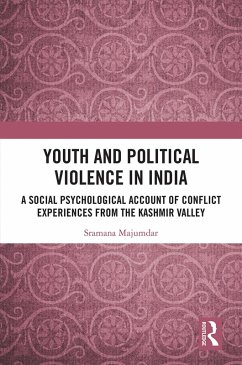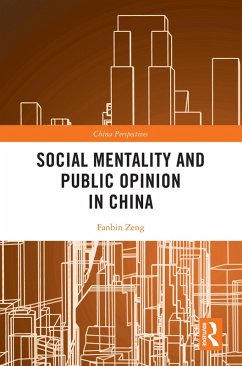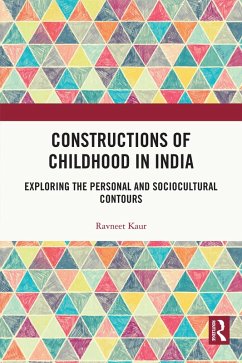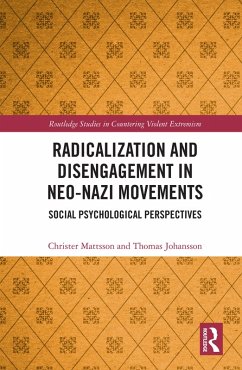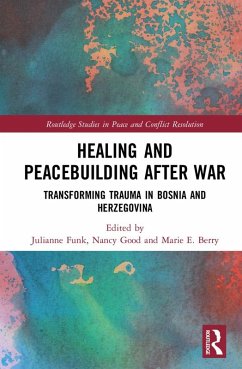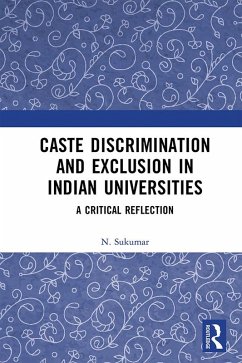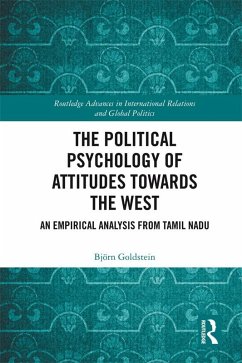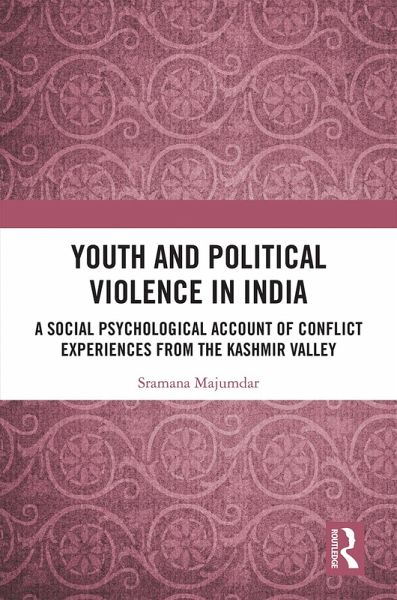
Youth and Political Violence in India (eBook, ePUB)
A Social Psychological Account of Conflict Experiences from the Kashmir Valley
Versandkostenfrei!
Sofort per Download lieferbar
41,95 €
inkl. MwSt.
Weitere Ausgaben:

PAYBACK Punkte
21 °P sammeln!
This book offers a socio-cultural and interdisciplinary understanding of the impact of political violence on youth behaviour. Drawing on extensive fieldwork in the Kashmir valley and reports from conflict areas across the globe, the volume brings to focus the ways in which violence affects social and psychological dynamics within the individual and the community. It develops a social-psychological approach to the study of youth and violent conflict in South Asia and offers new insights into the intricacies within the discourse, Focussing on the emotions and behaviour of people in large-scale c...
This book offers a socio-cultural and interdisciplinary understanding of the impact of political violence on youth behaviour. Drawing on extensive fieldwork in the Kashmir valley and reports from conflict areas across the globe, the volume brings to focus the ways in which violence affects social and psychological dynamics within the individual and the community. It develops a social-psychological approach to the study of youth and violent conflict in South Asia and offers new insights into the intricacies within the discourse, Focussing on the emotions and behaviour of people in large-scale conflict, it expands the discourse on the psychological dimensions of hope, aggression, emotion regulation the extremist mindset and policy and intervention for peace building.
Moving beyond western psychiatric models, this book proposes a more culturally and historically rooted analysis that focuses on collective experiences of violence to de-colonise psychological science and expand the understanding of youth's experiences with political violence. The volume will be of great interest to scholars and researchers of politics, psychology, peace and conflict studies, sociology and social anthropology.
Moving beyond western psychiatric models, this book proposes a more culturally and historically rooted analysis that focuses on collective experiences of violence to de-colonise psychological science and expand the understanding of youth's experiences with political violence. The volume will be of great interest to scholars and researchers of politics, psychology, peace and conflict studies, sociology and social anthropology.
Dieser Download kann aus rechtlichen Gründen nur mit Rechnungsadresse in A, B, BG, CY, CZ, D, DK, EW, E, FIN, F, GR, HR, H, IRL, I, LT, L, LR, M, NL, PL, P, R, S, SLO, SK ausgeliefert werden.




